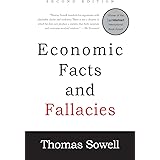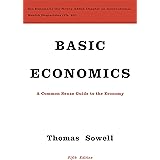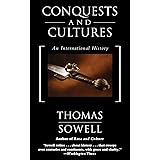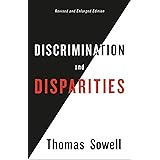
Download the free Kindle app and start reading Kindle books instantly on your smartphone, tablet, or computer - no Kindle device required.
Read instantly on your browser with Kindle for Web.
Using your mobile phone camera - scan the code below and download the Kindle app.

OK
 Audible sample Sample
Audible sample Sample 


The Quest for Cosmic Justice Hardcover – October 11, 1999
Purchase options and add-ons
- Print length224 pages
- LanguageEnglish
- PublisherFree Press
- Publication dateOctober 11, 1999
- Dimensions5.75 x 1 x 9 inches
- ISBN-100684864622
- ISBN-13978-0684864624
Books with Buzz
Discover the latest buzz-worthy books, from mysteries and romance to humor and nonfiction. Explore more
Frequently bought together

Similar items that may deliver to you quickly
Editorial Reviews
Amazon.com Review
From Library Journal
Copyright 1999 Reed Business Information, Inc.
From Booklist
From Kirkus Reviews
Review
About the Author
Product details
- Publisher : Free Press; First Edition (October 11, 1999)
- Language : English
- Hardcover : 224 pages
- ISBN-10 : 0684864622
- ISBN-13 : 978-0684864624
- Item Weight : 12.8 ounces
- Dimensions : 5.75 x 1 x 9 inches
- Best Sellers Rank: #252,997 in Books (See Top 100 in Books)
- #855 in History & Theory of Politics
- #1,567 in Historical Study (Books)
- #5,954 in Philosophy (Books)
- Customer Reviews:
Videos
Videos for this product

7:00
Click to play video

Customer Review: Thomas Sowell is Cosmic Justice!
BC

About the author

Discover more of the author’s books, see similar authors, read author blogs and more
Customer reviews
Customer Reviews, including Product Star Ratings help customers to learn more about the product and decide whether it is the right product for them.
To calculate the overall star rating and percentage breakdown by star, we don’t use a simple average. Instead, our system considers things like how recent a review is and if the reviewer bought the item on Amazon. It also analyzed reviews to verify trustworthiness.
Learn more how customers reviews work on AmazonReviews with images
-
Top reviews
Top reviews from the United States
There was a problem filtering reviews right now. Please try again later.
September 2, 2019
|
Victor C. Bolles
I just finished reading Thomas Sowell’s book, The Quest for Cosmic Justice. Although it was written in 1999, it presciently addresses many of the issues we face today including identity politics, social justice and entitlements, income inequality, personal truth being more important than reality (sometimes called wokeness or being woke) and the rejection of the American Founding Principles.
Dr. Sowell is a true genius and the personification of the American Dream. The son of a housemaid whose father died shortly after he was born, he was raised by his great-aunt in North Carolina. He had little contact with white people as a child but that changed when he moved to New York City when he was nine. In New York he qualified for the prestigious Stuyvesant High School for the academically gifted (one of the schools that NYC mayor and presidential candidate Bill de Blasio is trying to eliminate, because their students “don’t look like New York City”). He had to drop out of school for financial reasons before graduating and worked odd jobs (and even tried out for the Brooklyn Dodgers baseball team) before being drafted into the Marine Corps during the Korean War.
After his discharge from the Marines, Dr. Sowell initially attended historically black Howard University before a combination of letters of recommendation from his professors and high marks on his College Board exams got him into Harvard, from which he graduated magna cum Laude. He got his PhD. at the University of Chicago under the tutelage of his mentor Milton Friedman. He is now a professor at Stanford University and a fellow of the Hoover Institution.
Dr. Sowell writes about big issues in this book; cosmic justice, the nature of equality, the tyranny of visions and the impact of these forces on America.
If justice is a good thing, then cosmic justice must be a great thing. But Freidrich Hayek noted that, “nature can be neither just nor unjust.” One family emerges from the wreckage of their mobile home after a tornado and says, “our prayers were answered,” while their neighbors, who prayed equally hard, perished. Both families were equally deserving but suffered different outcomes. Nature isn’t just, nature just is.
Believers in cosmic justice don’t like such unfair outcomes. They cite John Rawls who stated that “undeserved inequality calls for redress.” We see these claims for redress in the demands for reparations for slavery, universal basic income and the Equal Rights Amendment. Dr. Sowell defines cosmic justice as the desire to rectify social inequities that people who, through no fault of their own, lack things which other people receive as windfall gains, through no virtue of their own. We have all seen Senator Elizabeth Warren convulse in anger at these inequities on the campaign trail and promise to redress them with the wealth of the one-percenters.
However, Dr. Sowell points out that the cost of cosmic justice can be very high. And it is not always a cost that can be covered by taxing the heck out of high net worth individuals or large corporations. A good example is the previously cited Bill de Blasio who wants to eliminate testing because the outcome of the testing results in too many white and Asian students and too few blacks and Hispanics in top schools. But the cost of this cosmic justice solution is that all the kids in the New York City School District are condemned to mediocrity. But it is not just the smart kids that pay the cost of this redress of academic wrongs. It is society that suffers from not inspiring the next Steve Jobs or Bill Gates.
Equality, much like justice, might be a laudable cosmic goal, but in practical terms it is impossible to achieve. There are so many factors that make up each person that it is inevitable that most people will be deficient in some factors and abundant in others. These factors, such as hair color, looks, physical fitness and weight in addition race, gender and sexual orientation, make it impracticable to have complete equality. Plus, you have to define what type of equality you are seeking. Would the search for equality in good looks justify a government entitlement for cosmetic surgery?
Progressives ignore the philosophical impracticality of complete equality and set up arbitrary standards by which to judge equality. We have the previously cited “look like America” standard. We also have the income inequality standard whereby certain identity groups earn less that others, a situation that calls for redress. But keep in mind that that out of the 10 highest paid athletes in the US, 8 come from one identity group (black) and 9 come from one sport (basketball, see; Social Justice Basketball). So, sometimes identity or cultural differences generate different outcomes.
Dr. Sowell points out that wealth is skewed not only by ethnic identity but also by age. Older people who have spent a lifetime saving and working their way up the corporate ladder have more income and wealth than younger people just starting out their professional career. And because the average age of the white population is older than that of blacks and Hispanics, whites would have more income and wealth, not because of the legacy of slavery or the fruit of prejudice, but because of age.
Dr. Sowell asserts that humans create visions (what Yuval Harari calls stories in his book, Homo Deus) of how the world works. This is essential because no human can comprehend all the events and understand all the data that are incorporated into life on earth. Early humans concocted visions (stories) to explain all the events that they could not understand such as; what are the sun and the moon and how do they move across the sky? We now call these visions superstitions or, perhaps, religions and ideologies. Dr. Sowell, however, further explains that when these visions defy the facts, they become dogma.
In modern times we have created numerous visions or dogmas that attempt to explain how a modern society functions. Politicians use these visions to attract followers and rely on the visions to explain why things occur even when there is no evidence to support such contentions. Autocrats use visions to strengthen their grip on power and punish or kill heretics and blasphemers who doubt their vision.
The populists substitute these visions in place of facts or truth and even go as far as denying facts or truth when they do not fit within the scope of their vision. This is why progressives are telling their adherents that they need to define their own truths. For example, Freshman Congresswoman Alexandria Ocasio-Cortez stated, “I think that there’s a lot of people more concerned about being precisely, factually, and semantically correct than about being morally right.” The facts are made to fit the vision – the opposite of the scientific method that was created during the Enlightenment. Of course, visions have also led to accusations of “fake news.”
Finally, Dr. Sowell brings all these trends together to address the “Quiet Repeal of the American Revolution” by comparing the differences between the American Revolution and the French Revolution, noting that the principal difference was in the Rule of Law. The goal of the American Revolution was the liberty of each citizen of the country – a liberty that required limits on the powers of government. The French Revolution wanted to right the wrongs of society and sought to do so by empowering “representatives on mission” with unlimited authority to accomplish their goals.
The Founders of America wanted liberty for the American people and limited the powers of government because an increase in constitutional rights can only occur as a result of a reduction in government power while an increase in social justice (also known as positive rights or entitlements) requires an increase in government power (which, ipso facto, means a reduction in constitutional rights). The United States was not created to seek cosmic justice or complete equality. It was created to limit the power of government in order to guarantee the liberty of the people to seek their own goals.
And it was the limitation of government that allowed the United States to prosper and grow. Because liberty unleashed the human capital of millions of Americans to strive to achieve their own goals (their own unique American Dream). It was the power of that human capital that drove America’s success.
The seekers of Cosmic Justice believe that other values are more important than liberty. Such seekers believe that people’s work must be dedicated to the betterment of society, not for their own ends. And the government, which defines what the betterment of society entails, will use force in order to get people to submit to the government’s will. And all that human capital will become cramped and constrained and society will wither.
Dr. Sowell described the forces working against our liberty twenty years ago. In the interim, those forces have only grown stronger and the defenders of freedom keep silent. Read this book to learn more about what is going on around you. And then speak out. For liberty!
The book consists of four chapters and each chapters are gold. Chapter one titled “The Quest for Cosmic Justice.” What Sowell calls “Cosmic Justice” is what today people all “Social Justice” and his analysis of this mindset is dead on. Sowell notes how cosmic justice requires more knowledge than traditional justice with the assumed ability of its advocate or practicioner to be able to compare windfall gains and loss in people’s life, the relative advantage and disadvantages individuals had even though it changes over the years, etc. Not only is cosmic justice advocates arrogant enough to figure out things despite cross-currents of people and influences that are not easily entangled these people also knowingly or unknowingly increases the risk of error of their computation of justice and injustice. When cosmic justice agendas are pursued advocates never take into account costs to third parties not involved and their suffering are either disregarded and/or dismissed. Chapter two looks at the topic of equality and it is one of the most detailed and nuanced discussion about equality and inequality I have ever read. Sowell is not writing this chapter because he likes inequality but here he’s trying to make a discussion between just and unjust inequality along with a critique of assumptions those who support social justice make about what equality looks like or the interpretation of inequality as always being unjust or their incorrect attempt to attribute the culpable fault of why there are inequality. Chapter three is titled “The Tyranny of Visions” and talks about how visionary elites who think they are better and more virtuous than others yet when they have agendas that does not account for the data and reality can bring about much evil and suffering even though the elites feel good just by holding to their ideas. This is a very good chapter that presents the case of study of how pacifisms have the unintended consequences of incentivizing the fascists to bring about a world war. Churchill has once said that World War Two is one of the most horrific war that could have been prevented. The final chapter discuss about cosmic justice in the American context of how the quest for cosmic justice is eroding the American founding principles. I thought he made a good point here that America’s revolution is unique than most of the revolutions in history for being about the procedure of check and balances in government and how to peacefully hand over the government to the next incoming power than being about injustice or quest for justice per se. Yet social justice agendas are tearing down the American experiment; while Sowell focuses on the American context I think the point he makes here is also relevant for any society in which social justice tears down the fabric of society and also how advocates can have sincere desire yet can bring about horrific unintended consequences.
There was so much I learn from this book and I spent a long time reading each page. That’s because the book was packed with so much information and economic thinking that seems counter-intuitive at times until one thinks through it carefully. There’s a lot of things I never thought of before that Sowell got me thinking about in this work. For instance in talking about inequality he talks about Primogeniture which is the practice of leaving an estate to the eldest son. We would consider that unfair with our modern sensibilities but he argues that we should look at it more closely. With the reality of scarce resource there is a reason why Primogeniture was implemented in certain societies. The purpose was to keep estate intact for generations and we see even in modern economic studies that when land gets broken up in small chunks sometimes it does not produce the amount of productivity than if it was intact. Thus we see starvation when government implemented redistribution and land giveaways program. Yet to balance this inequality there is the reciprocal expectation that eldest son has the duty to guide and watch over younger siblings, etc. Insightful! There’s so many of these insights in the book. I highly recommend this book!
For seventy to eighty years, America has switched from the sure foundation laid by the founding fathers of the American Republic. Sowell shows how that was done. Further, he shows how the ideology adopted by many today is incompatible with the founding principles set forth by the founders in the American Constitution. For those pursuing ideology, constitution be damned.
Sowell expresses his concerns over this socialist trend, especially in light of the glaring failures of socialism among such a wide swath of people, tribes, nations, and types of governments. Further, the identity socialism invented by the left would have been indiscernible and likely opposed by the inventors of socialism like Stalin.
Again, I cannot state how important this book is to Americans today. It’s truths herald the path forward away from the selfish ambitions that drive mankind to the safety and security of a government of the people, by the people, for the people as expressed in the founding documents of the Constitution and Declaration of Independence.















